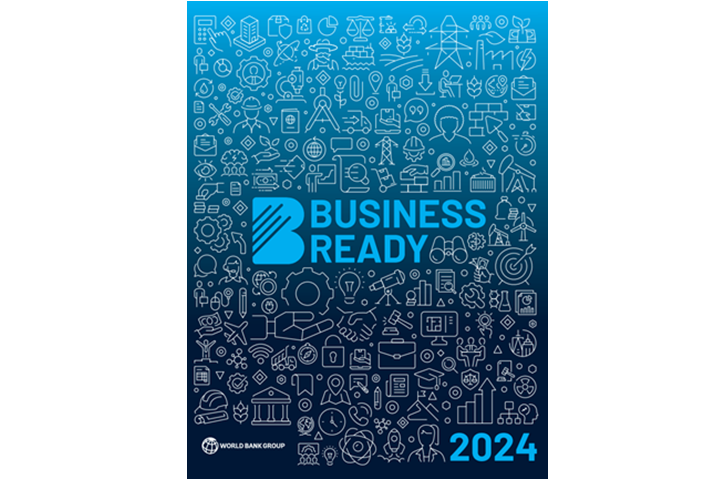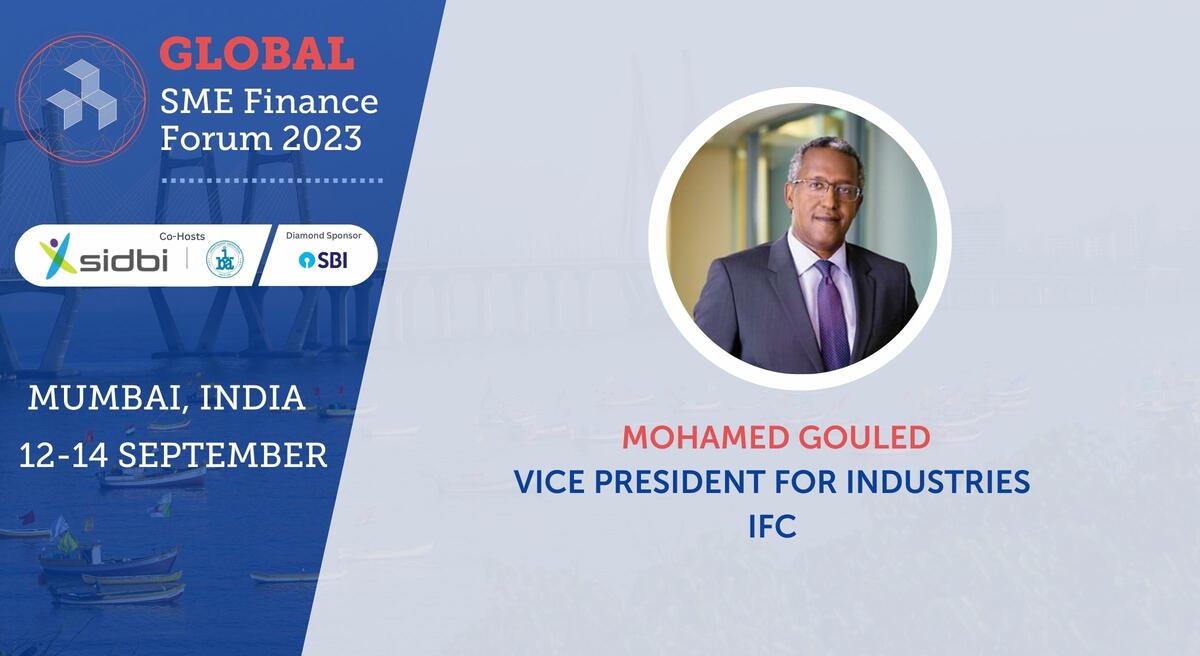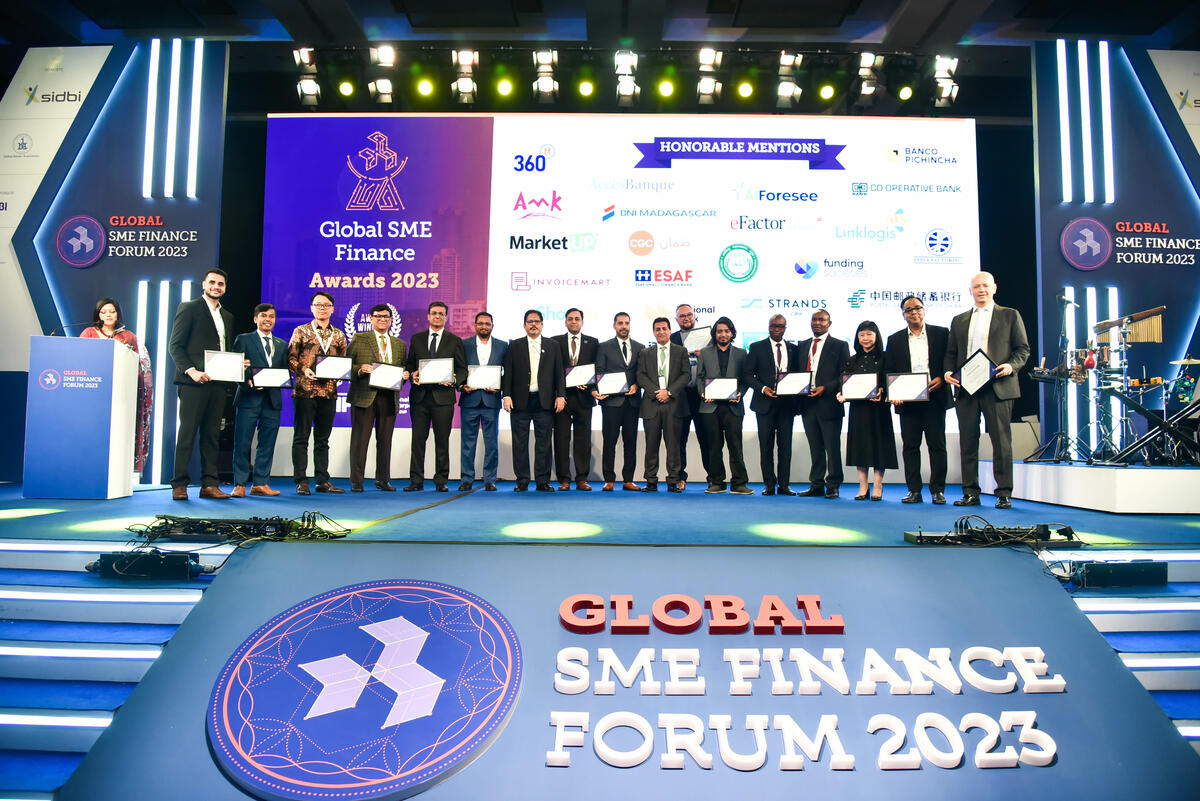Good morning, Ladies and Gentlemen. I am pleased to welcome you to the Hague. And of course a special welcome to the winners of the G20 SME Finance Challenge.
As many of you know, last October Dr. Kim announced a goal for the World Bank Group: that is, to ensure universal access to financial services by 2020. A goal always inspires both ambition and action. And what makes this one exciting is that it is achievable. National leaders, the G20, global financial standard setting bodies and the UN have also recognized the importance of financial inclusion.
Of course, SME-finance and SMEs are a big part of financial inclusion and related outcomes, including job creation, equitable growth, and poverty alleviation. The efforts of this Working Group have helped bring about this tangible progress and I do congratulate you on these many achievements. And today, I know you will be sharing lessons learned and best practices, and you will identify emerging issues, all of which will help your institutions, partners and the countries you're working in to be even more successful.
The program reflects your attention to many important aspects, such as access for women entrepreneurs and mitigation of currency exchange risks. But also to other practical topics, such as how to best leverage advisory services. I would like to highlight several issues that cut across these.
The first is reaching scale. Innovation has brought us where we are today-as the G20 Challenge winners illustrate. Several months ago in Peru, I met small business owners who did not have formal credit history, but received loans thanks to EFL's psychometric testing of their business acumen. A fish-monger named Severino was now able to buy a car and get a broader range of fish to his clients. As a result, he expanded his business, income and savings. Through this, he really had better opportunities. Collectively, we have now learned a lot about what works in terms of financial products, business models, and also regulations. Taking proven solutions to scale should now be a priority.
Scale hinges on several things, the first one is having the right product. But sometimes, scale requires a slightly different product or business model than pilots. It can also raise new issues in costs, training and staffing. For example, in Colombia, one to one coaching was very effective in strengthening the income generating activities of ultra-poor households, but it was expensive. The Government and partners are now testing whether on line training through ipads can have similar impact and also be sustainable.
Another challenge in scale is reaching all segments of the market. The private sector is essential to this, but sometimes companies may not be so eager to invest in poorer or more remote clients. Here, DFIs can help the private sector, by helping companies find the right business model, by extending the needed financial infrastructure to make investment viable, and by supporting public-private partnerships. Government can facilitate scale and investment through enabling policies and smart partnerships. Ghana, Colombia, China and other countries, with IFC's support, have benefited from establishing movable property regimes. In China, this project helped unleash more than $1 trillion of SME lending.
Addressing informality is a second priority. Being formal makes getting formal finance and other services easier, and thus support enterprise growth. There are many causes for informality. Sometimes, it is a matter of practicality or lack of knowledge. Sometimes, entrepreneurs feel the markets do not have the right incentives, for example due to high fees on services, cumbersome regulations or constraining tax regimes. In this case, the priority should be on making the benefits of formalization more attractive. For example, a government-led effort in Rwanda to establish simplified, fast business registration has been very successful. In other instances, business owners would like to formalize, but don't have the capacity or knowledge to do so. In this case, the focus should be on training, building capacity and product design to fit the social context. IFC developed a matrix to assess such causes of informality and determine relevant priority interventions. This kind of practical tool is a valuable contribution by donors and development partners.
As you know, enterprise success does not depend only on finance. There are many risks for small entrepreneurs. In Peru, only one of every three new micro enterprises is still in business after three years. Entrepreneurs need not only good business ideas and finance, but also financial and business skills to realize those growth prospects. This is especially important to support women entrepreneurs.
Here in The Netherlands, we have created an association that pairs loans with financial education and coaching to help entrepreneurs create solid business plans. Speak the language of banks and set priorities. I mention Qredits a lot because I am really very proud of the approach and the difference it is making. After three years, 85% of enterprises are still in business. This compared to 67% national average. This kind of approach is especially important for women entrepreneurs, who face more challenges in accessing finance than men.
Before I close, I would like to highlight one more priority. Better data on SMEs is essential to understanding needs, identifying which financial services foster productivity and enterprise growth, and guiding to guide policy and investments.
We have come a long way, thanks to the efforts by many of your organizations and other partners. Five years ago, we had very little global data on financial inclusion. Today, the IMF Financial Access Survey now covers supply-side data in 189 countries, including
SME finance data. The World Bank's Global Findex includes demand-side data from 176 countries. These surveys are complemented by research in specific countries and trend comparison. It is so important that we continue to fund these, and to support national data collection.
I would like to stress, however, that better data does not necessarily mean more data and more sets of indicators. Better data means more consistency and better comparability. To these ends, harmonizing SME lending data across IFIs and DFIs would be an important step, I hope these conversations to continue. Better data also means disaggregated country level data. For example, most data about SME finance and persisting gaps only measures finance taken by formal firms. Yet, by some estimates more than 90 percent of the unserved and underserved enterprises are micro-enterprises or informal MSMEs. So we need more data on small and micro-enterprises and the informal sector.
Ladies and gentlemen,
Scale, informality, financial capability and good data: each of these are key to deliver the financial services that SMEs need to grow and thrive. Addressing these cross cutting challenges requires coordination and sharing of knowledge. Global platforms, like the G20 GPFI and the SME Finance Forum, together with this Working Group, support these outcomes. But we need to extend these efforts to the local context. IFIs and DFIs have a real opportunity to take an even stronger lead on coordination at the country level, together with other international partners in support of national financial inclusion strategies. We need to partner more. This will be essential to deliver universal access to financial services and to support SMEs.
I hope you continue to have good conversations today, and look forward to hearing of your continued success.
Thank you.









